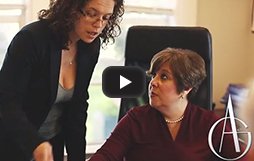Misconceptions About Chapter 13 Bankruptcy
When most people file for bankruptcy, they file under Chapter 7 of the U.S. Bankruptcy Code. However, there is another alternative. Chapter 13 is available to debtors who have slightly different circumstances than the average bankruptcy filer, and while there are a few more obligations to filing Chapter 13, it may benefit you more than a Chapter 7 bankruptcy.
Myth: A debtor must have very low income in order to file Chapter 13. False – a Chapter 13 filing is actually referred to as a wage earner’s plan. You must have enough income to be able to make monthly payments on your plan – without it, a Chapter 13 plan is not viable. If you have very low income, a bankruptcy professional will likely counsel you to avoid filing for Chapter 13 bankruptcy.
Myth: Filing Chapter 13 won’t stop my home from being foreclosed upon. False – it is the bankruptcy type most often chosen by those with substantial home equity because they wish to keep their homes. When you file, federal law mandates an automatic stay on any kind of debt collection. Chapter 13 provides a window of time in which to pay off debts, so it is possible to cure any mortgage deficiencies. If you can do so, you will keep your home.
Myth: Chapter 13 is pointless because I’ll still have to repay everything I owe, and I can’t do that. False – Chapter 13 is the plan under which a debtor is given time to repay some of what they owe; the amount of repayment is based on many more factors than simply what you owe. You will almost certainly receive a bit of a break in terms of the total amount you will pay.
Myth: Chapter 13 does not allow for the discharge of tax debts. False, at least in part – there are certain types of taxes you may discharge under Chapter 13. The most common is income taxes owed on previous returns – if you owe taxes on returns filed long ago, did not commit fraud, and have had no additional assessment of your debts for more than 240 days prior to filing, you may be able to discharge that specific debt.
Contact A Bankruptcy Lawyer
Bankruptcy is by far one of the most difficult areas of the law to navigate as a layman. If you are in a position where you are considering bankruptcy, it is essential for you to have a bankruptcy lawyer on your side. The Orlando bankruptcy lawyers at the firm of Goodblatt · Leo have years of experience in Chapter 13 and Chapter 7 filings, and can guide you through the process so you can begin to rebuild your finances with a clear conscience. Contact our offices today at 407-228-7007 or our website, agoodblatt.com, to contact us.






